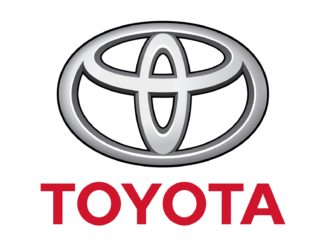With the growth in vehicle sales in India, dealerships are facing more challenges to effectively managing the customer experience during the new-vehicle shopping process, according to the J.D. Power 2016 India Sales Satisfaction Index (SSI) StudySM released today.
There is a significant increase in the proportion of customers who face problems and pressures when shopping for their new vehicle. The study finds that 37% of customers in 2016 experience problems with a small selection of models and their salesperson having difficulties in answering their questions, up from 17% in 2015. Similarly, 17% of customers say they experienced pressure from their purchase dealer, up from 10% last year. First-time buyers are particularly affected by these issues, which results in overall satisfaction scores 12 points lower (on a 1,000-point scale) than among repeat buyers.
“While the boom in car sales augurs well for the industry, it is equally essential to provide a memorable experience to customers who are buying their vehicles, especially those buying a new vehicle for the first time,” said Mohit Arora, executive director, J.D.Power Singapore. “Dealerships and automakers need to make a special effort in welcoming first-time buyers who increasingly have more alternative mobility solutions available.”
Internet Having an Impact
New-vehicle buyers in India are increasingly turning to the Internet as a source of information during the shopping process. More than a third (34%) of customers in 2016 are using the Internet for shopping, up from 28% in 2015. Social media and blogs, in particular, are experiencing a significant increase in usage. Nearly one-fourth (24%) of customers cite using some form of social media to gather information before their purchase, up from 8% in 2015, while 18% indicate posting online about their purchase experience, up from 10%.
“More car buyers are operating in high-information-gathering mode, during which they refer to multiple websites to help them make an informed decision,” said Kaustav Roy, director at J.D. Power, “Vehicle manufacturers that have a strategy to manage the social chatter surrounding their brands stand to benefit as more word-of-mouth recommendations migrate toward online.”
Now in its 17th year, the study examines six factors that contribute to overall customer satisfaction with their new-vehicle purchase experience in the mass market segment. In order of impact on overall sales satisfaction, those factors are sales initiation (17%); dealer facility (17%); deal & paperwork (17%); delivery timing (17%); salesperson (16%); and delivery process (16%). Sales satisfaction performance is reported as an index score based on a 1,000-point scale, with a higher score indicating greater satisfaction with the new-vehicle sales and delivery processes. Overall satisfaction for mass market brands averages 809 in 2016.[1]
Following are additional key findings of the study:
- Dealer Reputation, Operational Effectiveness Critical to Dealer Selection: More than four in 10 (44%) customers choose the dealer from which they purchase their new vehicle based on dealer reputation and operational effectiveness, while only 13% base their choice on deal or lower price.
- Time Critical to Customers: The average sales transaction time increases to 10 days in 2016 from 9 days in 2015, and the average delivery time for the vehicle increases to 14 days from 11 days.
- Test Drive Key Engagement Activity: Among the 61% of customers who took a test drive, overall satisfaction is 816, which is 75 points higher than among those who were not offered test drive.
- Loyalty, Advocacy Linked to Sales Satisfaction: Among highly satisfied customers (overall sales satisfaction scores of 893 and higher), 68% say they “definitely would” recommend their purchase dealer to family and friends, compared with only 31% of highly dissatisfied customers (scores of 738 and lower). Additionally, 64% of highly satisfied customers say they “definitely would” buy their next vehicle from the same dealership (or brand), while only 26% of highly dissatisfied customers say the same.
2016 India SSI Rankings
Toyota ranks highest in sales satisfaction among the 12 mass market brands ranked in the study, with a score of 838. Toyota performs particularly well in the delivery process factor. Nissan (831) ranks second, and performs particularly well in the salesperson factor. Honda, Hyundai and Mahindra tie for third at 815 each.
The 2016 India Sales Satisfaction Index (SSI) Study is based on evaluations from 7,604 original owners who purchased a new vehicle from September 2015 through April 2016. The study includes 69 models covering 14 nameplates and was fielded from March through July 2016 in 30 cities across India.
The India Sales Satisfaction Index Study has been redesigned in 2016 to capture the trend changes in the automotive industry, as well as to better reflect the shifts in consumer preferences. Due to the study redesign, the SSI scores for the 2016 study cannot be compared with index scores from previous years.
Click the below link to view the entire report:
2016 India J.D. Power Sales Satisfaction Index (SSI) Study 310816



